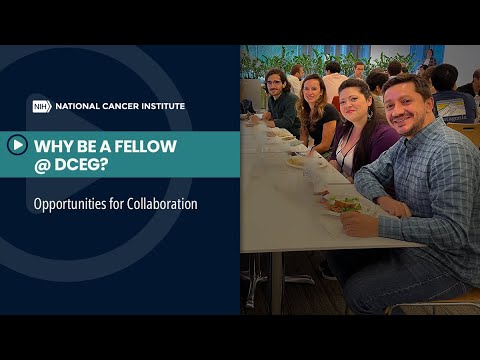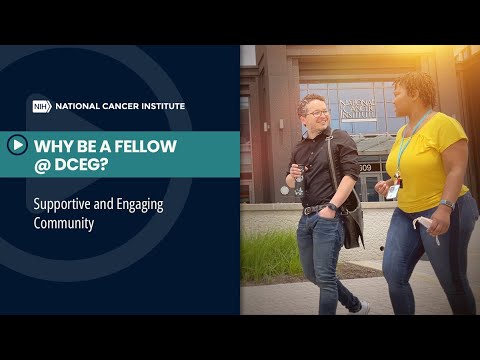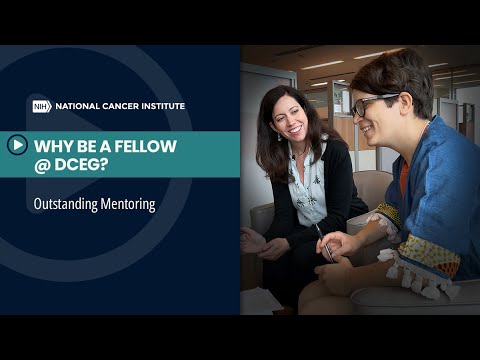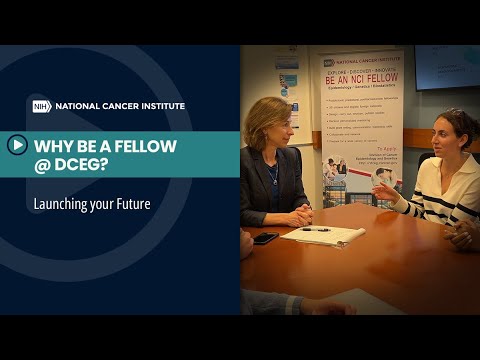Optimizing the Workforce: The Importance of Fellows
, by Elise Tookmanian, Ph.D.
In the Division of Epidemiology and Genetics (DCEG), fellows are an integral part of the interdisciplinary teams conducting cutting-edge research. Continually recruiting and training talented fellows is vital for optimizing the Division’s workforce. Potential fellows are more likely to choose DCEG if they feel aligned with the Division’s values and inspired by the advantages a DCEG fellowship offers. In early 2024, DCEG published four videos outlining some of these values and advantages, as expressed by fellows, investigators, and Division’s Office of Education staff.
Opportunities for Collaboration
With access to the latest technology, methods, and data registries, along with partnerships across the NCI, NIH, and the global research community, DCEG fellows are uniquely positioned to conduct world-class, collaborative research.
Supportive and Engaging Community
DCEG fosters a supportive and engaging community where fellows can build the skills they need to become cancer researchers. As they embark on new avenues of discovery, they share their enthusiasm with not only their scientific mentors, but also peers across the Division who are just as eager to learn.
Dynamic Mentoring
DCEG fellows benefit from the professional guidance and dynamic mentoring of multiple investigators, who are leading scientists in the field of cancer epidemiology, genetics, and biostatistics.
Launching your Future
DCEG provides comprehensive cancer research training to prepare fellows to launch their careers as epidemiologists, geneticists, cancer research scientists, and more. This training covers a diverse range of topics including grant and manuscript writing, public speaking, leadership and management, mentoring, teaching, and wellness.



